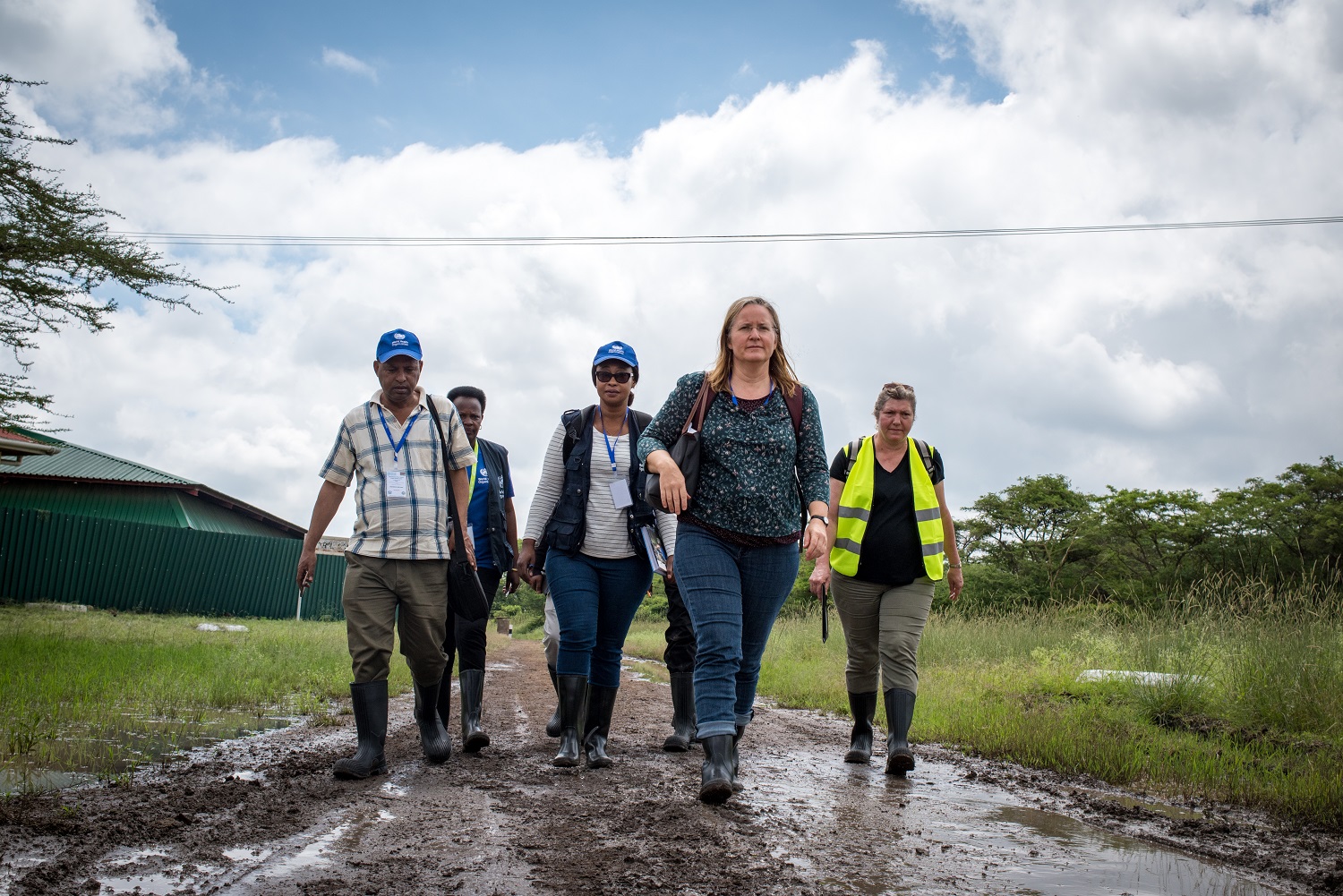The Emergency Communications officers had been dispatched to support routine health messaging before a major international football championship. They had just arrived, but they could already sense that something was off.
The border guards were unusually tense, looming clouds threatened heavy rain, and radio talk shows were inundated with rumours and calls for protests.
Soon after settling in, their fears were confirmed. Unexpected outbreaks of both Zika virus disease and cholera were occurring, just as the international crowds were arriving.
Adding to the complexity, the Government was yet to make an announcement about either outbreak.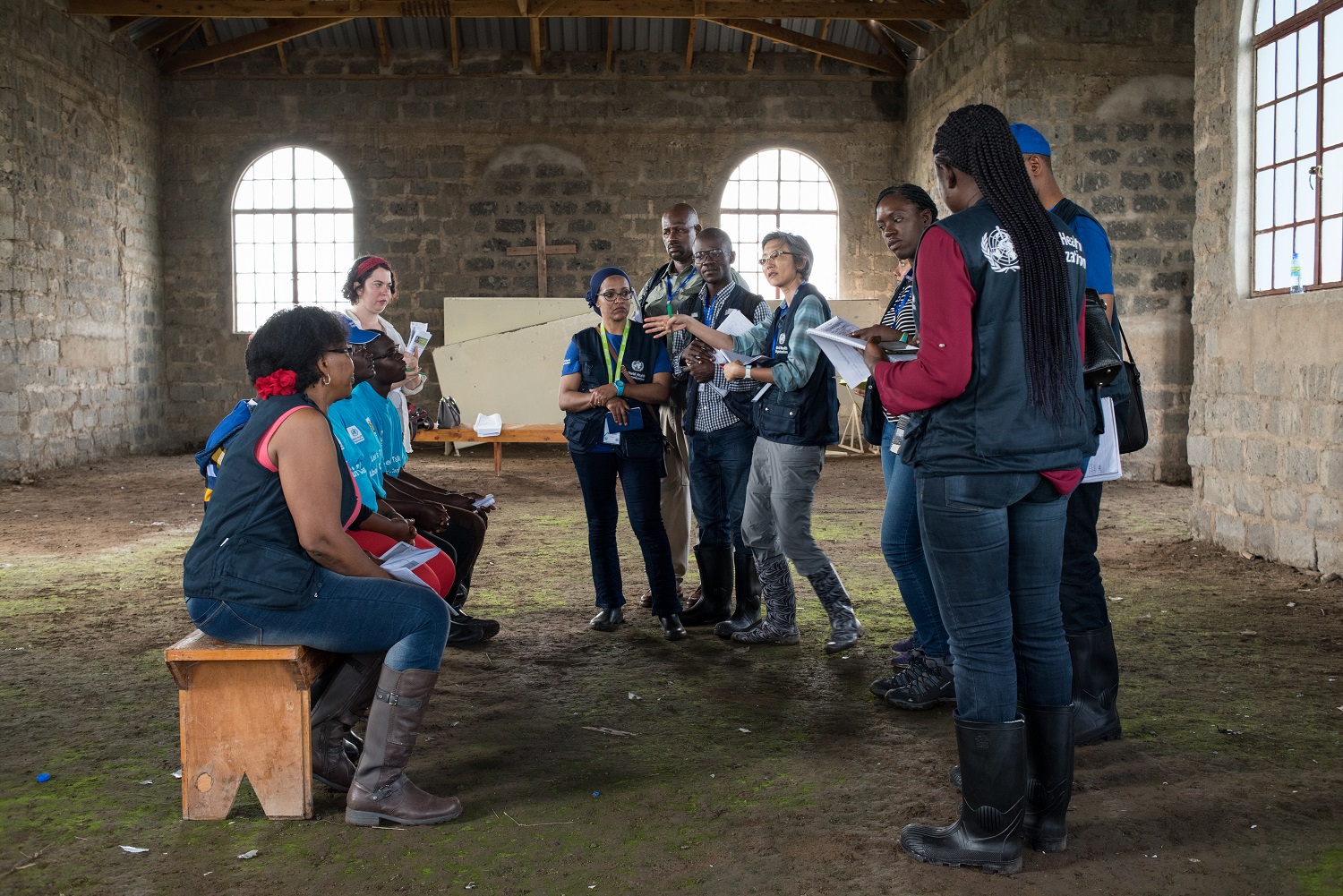
Luckily for the deployees, the situation was a simulation. The 50 participants were taking part in the World Health Organization’s Emergency Communications Network (ECN) training in Nairobi, Kenya.
Building a trained & trusted cohort of emergency health communicators
At a time when growing numbers of people around the world need humanitarian assistance and disease outbreaks are a continual global threat, the systems needed to respond are under unprecedented strain. One of the resources in short supply are field response staff – specialists who, at a moment’s notice, can take their skills to some of the world’s most vulnerable locations.
The ECN training is one of the many ways that WHO is working to build a health reserve workforce. The training aims to create a trained, trusted and tested cohort of communicators in WHO, in Ministries of Health, and in partner organizations to strengthen the response to public health emergencies.
“In the past twelve months, WHO has responded to 50 emergencies in 47 countries. Effective communication in emergencies can save lives and communication coordination with partners is a critical part of our response. ECN participants practice with Ministries of Health & partners in a simulated emergency with increasing complexities so that they can save lives in real emergencies.” – Vismita Gupta-Smith, WHO Communication Capacity Building Lead.
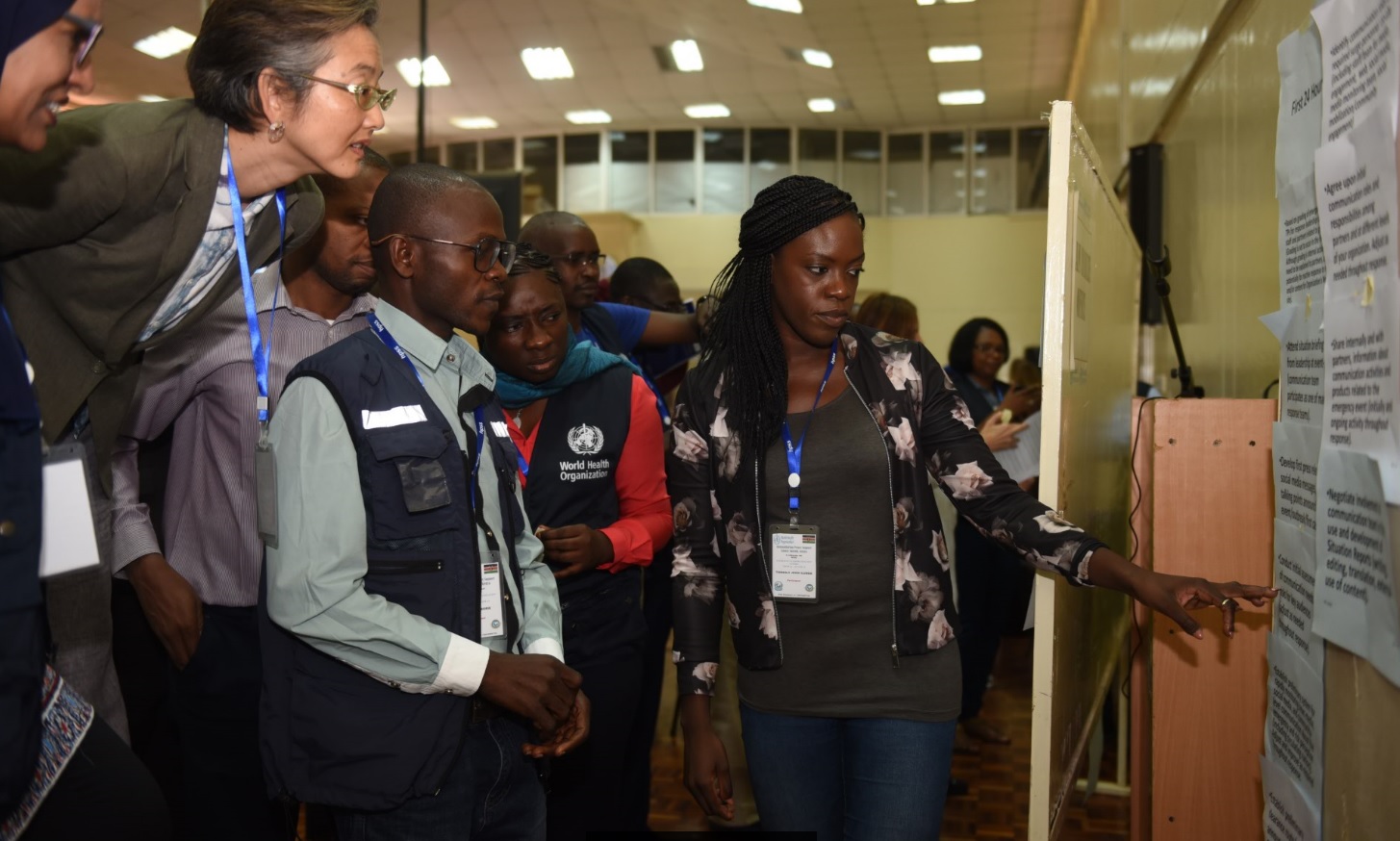
On 27 April 2018, WHO concluded its sixth ECN training. The focus was on building emergency communication capacity across the WHO Region of Africa. Ministries of Health from 18 priority African countries took part, in addition to communications officers from WHO offices in 27 countries and two partner agencies.
This year, the training was co-funded and co-facilitated by the US Centers for Disease Control and Prevention (CDC).
“Participating as funders, collaborating on the planning, and providing facilitators and materials for the 2018 ECN training with WHO was a natural step in our long-running partnership. At CDC, we understand that disease knows no boundaries and can spread from isolated villages to city settings in a matter of hours. Collaborating with WHO in this training allows us to help other countries increase their ability to respond to health threats on their own.” – Donda Hansen, Associate Director for Communication (Acting), US CDC, Center for Global Health and 2014 ECN Alumni.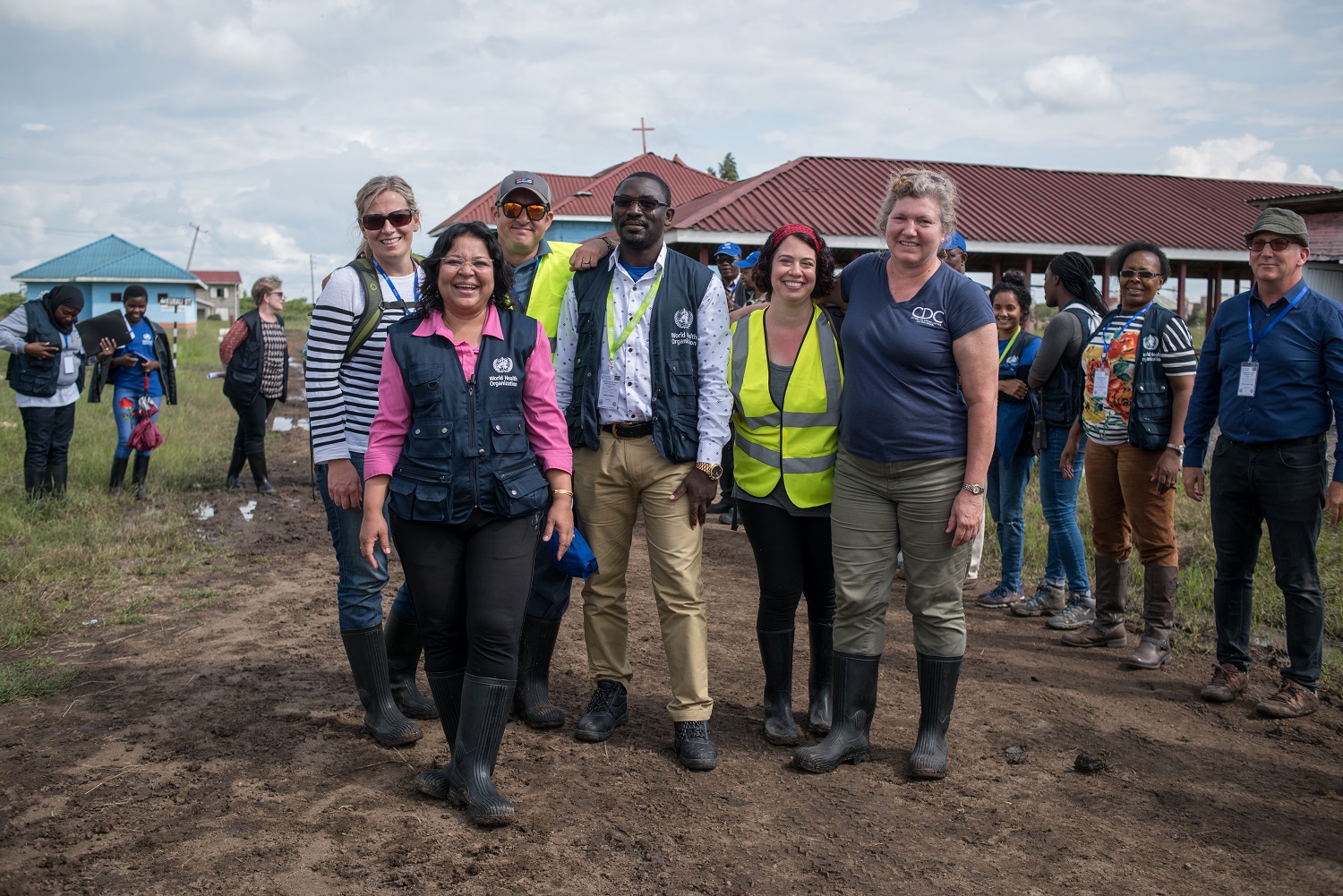
Nearly 230 communication officers have completed the training since 2013. ECN alumni have been deployed to provide communications assistance during health emergencies worldwide, including in response to conflicts in Iraq, Syria and Yemen, the 2015 earthquake in Nepal, Ebola outbreaks in West Africa, the recent refugee influx in Cox’s Bazar, Bangladesh and most recently in the Ebola outbreak in Democratic Republic of Congo.
“ECN training familiarized me to the emergency procedures and broadened my global perspective. It also enabled me to network with internationally respected communication experts. It was a challenging training that helps me communicate in health emergencies and humanitarian crises currently taking place in Yemen.” – Sadeq Hasan, WHO Communications Officer, Yemen and 2015 ECN Alumni.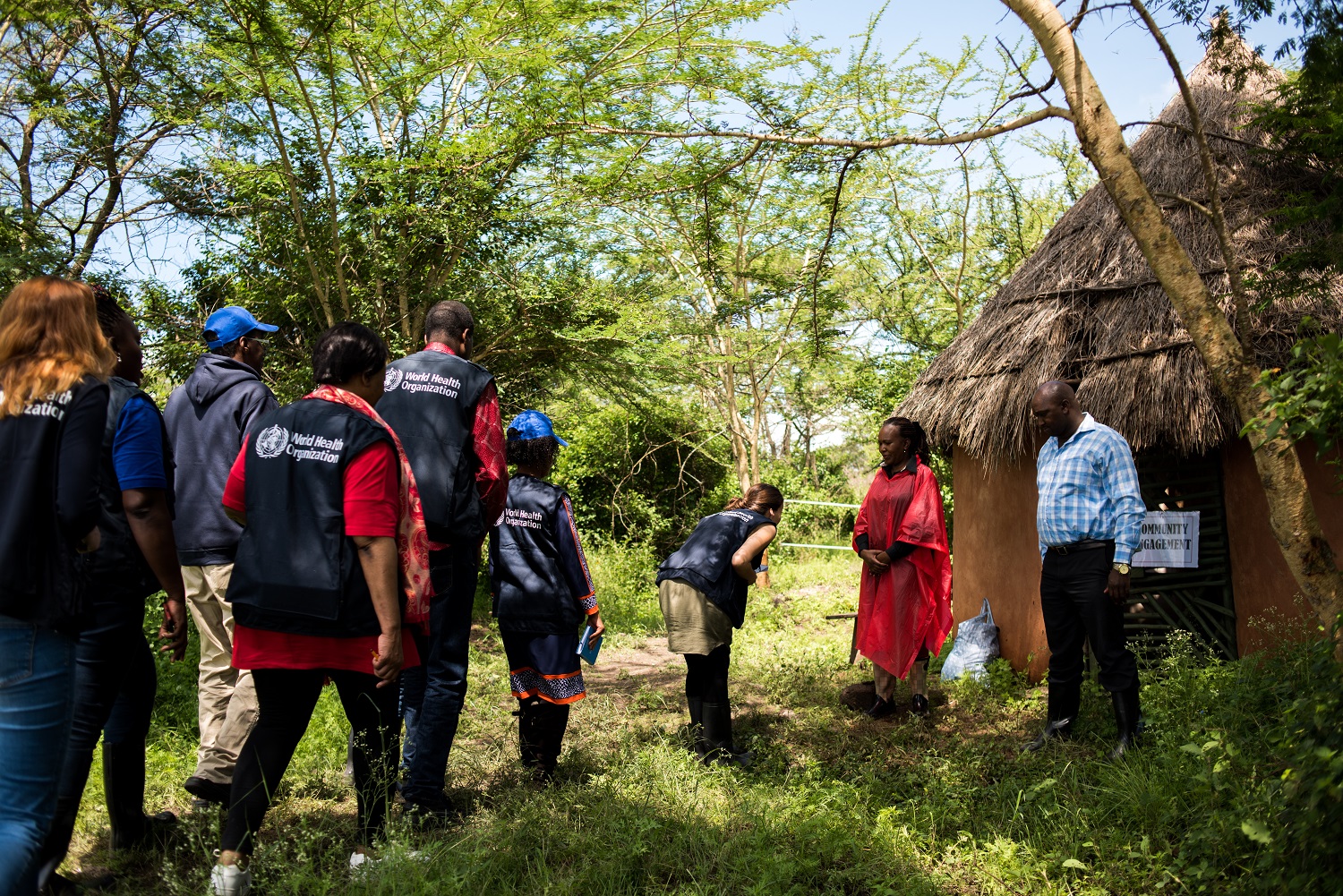
Learning through realistic experiences
The training is designed to give participants a realistic experience of an emergency. Trainers use adult learning techniques, including role plays, to maximize learning in a stressful yet safe space.
This year the scenario was built around rapidly developing disease outbreaks during an international football championship in a fictitious African country, Zambre, which faces a range of security, developmental and public health challenges.
During the five-day exercise, participants learned communications principles and tools in theory sessions delivered by facilitators from WHO, US CDC, and The Warning Project and collaborated to provide communication responses to the health emergencies in Zambre. Participants were required to take part in simulated interactions with government officials, hospital directors, and partner organizations, as well as meeting affected communities and developing communications materials about the response.
Trainers also acted as mentors, and played a range of roles, from radio talk show hosts to affected community members to partners and donors.
“ECN is one of the most intense experiences I’ve been through, both as a participant in the first training in 2013 and now again in 2018 as a trainer, mentor and facilitator. The beauty of it is that it did not feel like being on the other side: you learn as much as your team members by establishing bonds of trust and exchange in the midst of a compelling scenario. You need a supporting team in an emergency and this is what we created in Zambre”. – Cristiana Salvi, External Relations Manager, WHO Regional Office for Europe and 2013 ECN Alumni.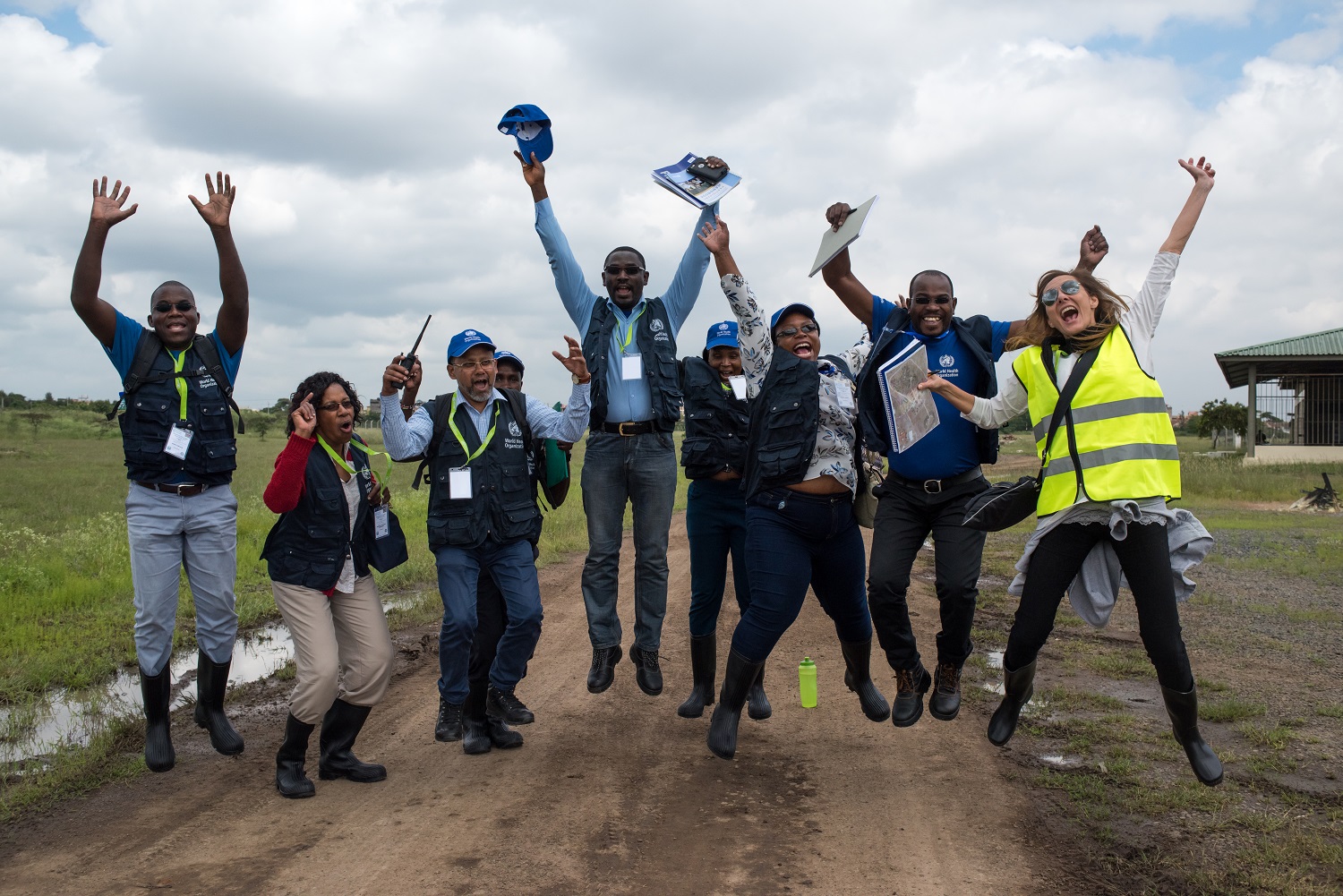
Ready for the real thing
Most trainees enjoyed the challenges and said they feel better prepared to communicate quickly and appropriately during health emergencies in the future.
The material and the experience are valuable, but so too are relationships formed during the intense training sessions.
In Kenya, Wycliffe Matini from the Ministry of Health has organized press briefings and communications campaigns in response to the discovery of circulating polio vaccine virus in Nairobi.
“The ECN training came at an opportune time when Kenya was preparing to respond to a polio event. The training helped me upgrade a wide range of communication skills, but I wish to Linespecially mention the media practice during ECN training. I started using these skills immediately. As a result I could communicate better with the media and this resulted in better coverage for our polio response unlike in the past.” – Wycliffe Matini, Ministry of Health Kenya and 2018 ECN Alumni.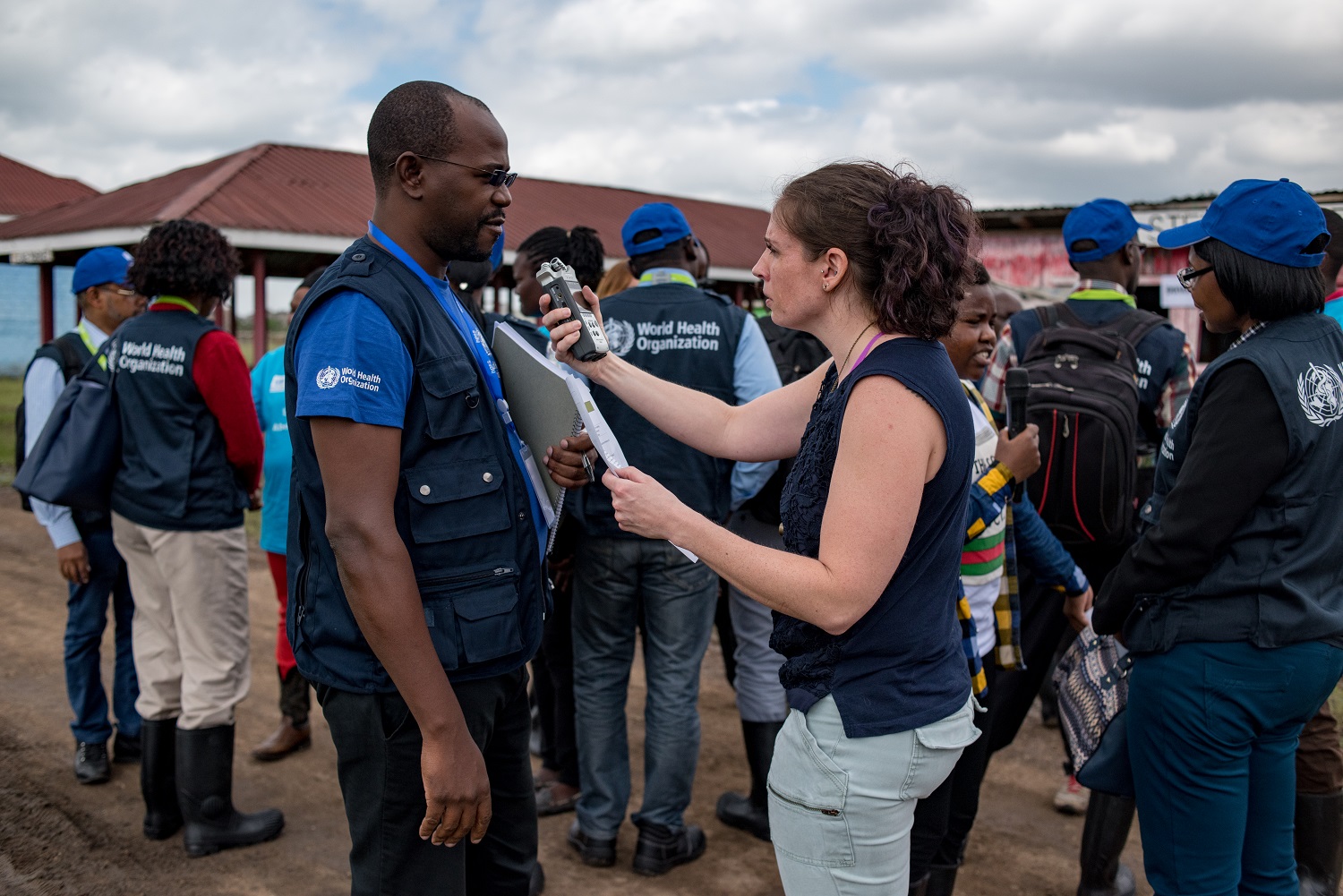
Participants from ECN AFRO 2018 are already putting their training into action in the response to the ongoing outbreak of Ebola in the Democratic Republic of the Congo. , ECN-trained communicators are supporting the response from WHO country office and Ministry of Health.
“As communication officers in DRC, ECN was a tremendous training that equipped me to respond to numerous requests for information from media & the public. This training gave me the 360 degree view of communication response in an emergency like this. I am glad that Henri Mbiya, my counterpart in the Ministry of Health also received ECN training . This connection has been critical to our work together.” Eugene Kabambi WHO Country Office for DRC and ECN 2013 and 2018 Alumni.
As ECN graduates continue to be deployed in emergencies, the training will continue to evolve, integrating new approaches and build partnerships to create a workforce of excellence that saves lives in emergencies.
